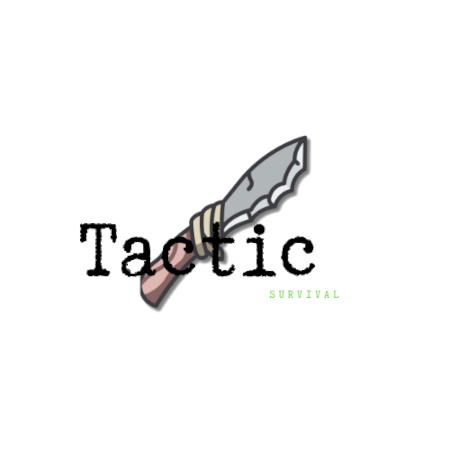Did you know high stress can really affect our choices and how well we handle pressures in life and death scenarios?
Being able to manage stress is key to staying strong in tough spots. When life hangs in the balance, handling stress well can help you think clearly and stay emotionally steady. This directly affects how well we deal with survival challenges.
This article dives into managing stress in life or death settings. We’ll look at how our body responds and how to cope effectively from all angles. You’ll also learn about proven tools to lower stress. So, whether it’s the wild, a natural catastrophe, or a sudden crisis, you’ll know what to do to stay strong and calm.
Key Takeaways:
- Effective stress management strategies are crucial in survival scenarios.
- High levels of stress can significantly impact decision-making and overall resilience.
- Understanding the fight-flight-freeze response is key to managing stress effectively.
- Top-down and bottom-up coping strategies provide different approaches to stress relief.
- Utilizing evidence-based tools can help maintain mental well-being in survival situations.
Understanding the Fight-Flight-Freeze Response
The fight-flight-freeze response is how our body reacts to stress. When we feel threatened, our body releases hormones. These hormones prepare us to face or avoid the stress.
Our bodies go into action mode with this response. It helps us fight what’s scaring us, run away, or sometimes, stay still. This “freeze” action might help hide from danger.
But, too much stress for too long can be harmful. It can put us in a mode where we’re always anxious. This mode can harm our relationships, make daily tasks hard, and lead to sudden anger.
It’s crucial to spot the signs of this survival mode. Feeling constantly on edge, being very irritable, having trouble sleeping, focusing less, or feeling overwhelming fear need attention.
Signs of Survival Mode:
- Constant high anxiety
- Relationship challenges
- Difficulty in daily life tasks
- Angry outbursts
- Persistent feeling of being on edge
- Heightened irritability
- Sleep disturbances
- Decreased concentration
- Overwhelming sense of fear or helplessness
Coping with stress needs the right help and strategies. This might involve getting therapy, learning mindfulness, doing relaxation activities, and finding joy in hobbies.
“Understanding and spotting survival mode signs is key. It lets us actively manage stress and bring balance back to our lives.”
Top-Down and Bottom-Up Coping Strategies
There are two main types of coping strategies: top-down and bottom-up. They help people handle stress by managing their feelings and finding balance.
Top-Down Coping Strategies
Top-down strategies include using your brain to deal with stress. This means thinking through problems and finding solutions. You can change how you see things to worry less. Writing about your feelings or thinking things over can also help you calm down.
“Seeing things in a new light and looking at problems differently can make tough times easier.”
Doing things that calm you, like reading or being outdoors, is also useful. It helps you not think about what’s stressing you. This way, you can feel peaceful.
Bottom-Up Coping Strategies
Bottom-up methods aim to relax your body and change how your brain reacts to stress. They focus on making you less anxious and more physically relaxed. You can try breathing deeply, tensing and relaxing your muscles, or grounding techniques. These all help your body chill out.
“Breathing deeply and using grounding can help you feel less stressed in tough spots.”
Moving your body, through exercises or yoga, is another great way to deal with stress. It gets those feel-good chemicals flowing and makes you stronger overall.
Using both kinds of strategies is key. This way, you’re prepared to face tough times In a number of ways. You become better at handling stress and staying strong.
Tips for Overcoming Survival Mode
Getting out of survival mode is tough, but not impossible. It takes some work and learning good coping skills. Here’s how you can get your life back on track:
1. Utilize Bottom-Up Coping Strategies
To leave survival mode behind, try bottom-up coping. These methods help calm your body and change how your brain reacts to stress. You can start each day with activities like:
- Deep breathing exercises: Breathing deeply can help your body relax and lower stress.
- Progressive muscle relaxation: Practice relaxing your muscles to help you feel calm.
2. Consistently Practice Coping Skills
Keep your mind and body calm by doing coping skills regularly. You can try:
- Spending time meditating mindfully: This can reduce stress and make you feel better.
- Writing in a journal: It’s a way to understand your feelings and deal with tough emotions.
3. Seek the Assistance of a Trauma Clinician
Getting help from a trauma expert can make a big difference. They will offer special help and create a space for you to recover. Finding a trauma clinician means you are taking an important step towards getting better.
Healing from trauma doesn’t happen overnight. You need to be patient and believe in the journey. With your hard work and guidance from a trauma expert, you will slowly leave survival mode behind. Over time, you will feel in control and healthy again.
The Impact of Stress on Survival Performance
Stress is key in survival, impacting our performance in good and bad ways. Knowing how it affects us helps keep us functioning well.
Acute Stress: Enhancing Performance
Short-term stress in survival situations can boost performance. It kicks off the fight-or-flight reaction. This gets our bodies ready to act, improving our mind and body functions when facing danger or challenges.
Under acute stress, we become super alert, think quicker, and solve problems better. Our bodies are preparing to tackle immediate dangers. This taps into our natural survival skills.
Chronic Stress: Impairing Performance
Long-term stress, on the other hand, can harm how well we do in survival situations. If stress keeps up, it exhausts us mentally and physically.
This tires us out. We think and perform worse. It wears us down, making us weak and more likely to get sick or feel unstable emotionally. All this makes it harder to face survival challenges.
It’s vital to handle stress well in tough situations to stay in top shape. Practices like mindfulness, deep breathing, and relaxation activities are great for this. They help lessen the bad effects of long-term stress. This keeps our decision-making sharp and our performance high.
The image above shows how stress and survival relate intricately with each other.
Evidence-Based Tools for Stress Management
Handling stress well is key to staying mentally healthy and physically fit when things get tough. Using proven methods can make you better at coping with stress. This way, you feel more at ease and balanced. Adding these ways to manage stress in your day brings long-lasting advantages.
Here are some strategies that really work:
1. Physical Activity
Moving around a lot helps a ton with stress. A study found out that people who did some kind of exercise most days felt 50% less stress. So, try jogging, cycling, dancing, or yoga to chill out. It can make you feel better and boost your happiness.
2. Nature and Green Spaces
Getting outside in nature can lift your spirits and help you calm down. Just being in a park or hiking hills can make you feel better fast. Even watching videos of nature can lower stress. So, take time to enjoy natural places to feel better.
3. Cognitive Behavioral Therapy (CBT)
CBT is a popular and effective way to fight stress and worry. It looks at how our thoughts affect our feelings and actions. By changing negative thoughts, you can feel less stressed and more in control. Talking to a CBT therapist can make this even more helpful.
4. Sleep Routine and Relaxation Techniques
Getting good sleep is a must for handling stress. A calming bedtime routine can make a big difference. Try things like deep breathing, muscle relaxation, or meditation before sleep. This helps you relax and get better rest.
5. Mindfulness Meditation
Mindful meditation is great for reducing stress and anxiety. Even short practices can help. Mindfulness means focusing on the now without judging yourself. Doing this often can make you feel calmer and more aware.
6. Stress Reduction Activities
Doing things that you love can really calm you down. Whether it’s art, music, planting, or reading, these hobbies can lower your stress. They make you feel happier and more satisfied. This helps your overall well-being too.
Using these tools every day can really cut down on stress and make you feel better. But remember, what works for someone else might not work for you. So, try out different methods to see what helps you most.
References:
- Study: https://www.ncbi.nlm.nih.gov/pmc/articles/PMC3567006/
- Study: https://www.apa.org/topics/our-common-ground/nature-and-us.pdf
- Study: https://www.apa.org/news/press/releases/2019/12/behspeak-emotions
- Website: https://www.apa.org/topics/stress/tips
Conclusion
Having good ways to deal with stress keeps your mind healthy, helps you make good choices, and makes you stronger. When people use different methods to handle stress, they can get through tough times. They can get out of just surviving and increase their chances of making it through.
Taking care of yourself first is very important. It’s also wise to get help from experts when you need it. It ensures you manage stress well and stay emotionally healthy. For example, kids who beat cancer can feel better if they learn ways to lessen stress(J Clin Oncol. 2010). Young adults who have had cancer need to watch their stress levels too(Support Care Cancer. 2013).
Many teens and young adults with cancer might feel depressed. So, it’s really important to have ways to reduce stress for a healthy mind(Dialogues Clin Neurosci. 2015). Feeling hopeful and finding good things in tough times really helps. It’s key for young cancer patients fighting their illness(Pediatr Blood Cancer. 2019).
Studying how caring for both the mind and body affects cancer patients who are adolescents and young adults is crucial(Psychooncology. 2019). The hurtful stuff from childhood may make dealing with cancer harder in young grown-ups. So, it’s critical to help them reduce stress(Support Care Cancer. 2020).


